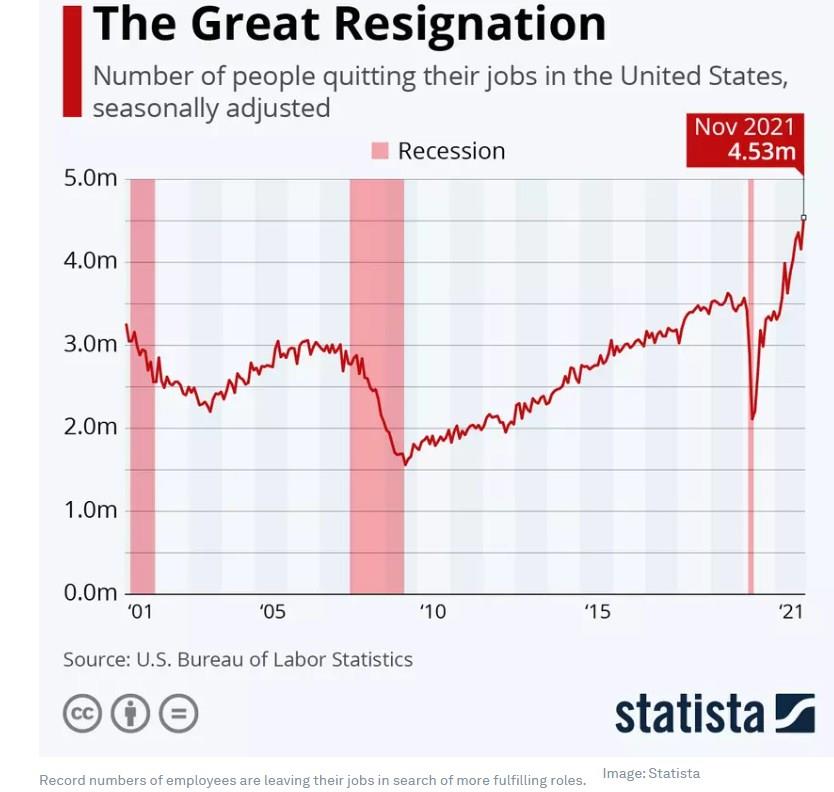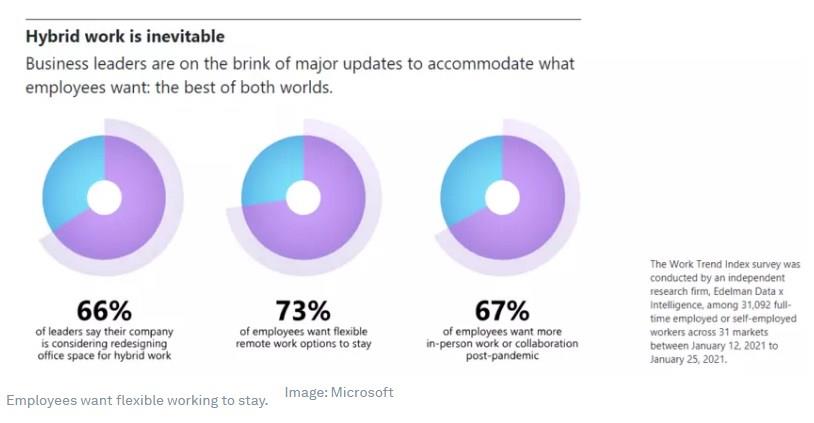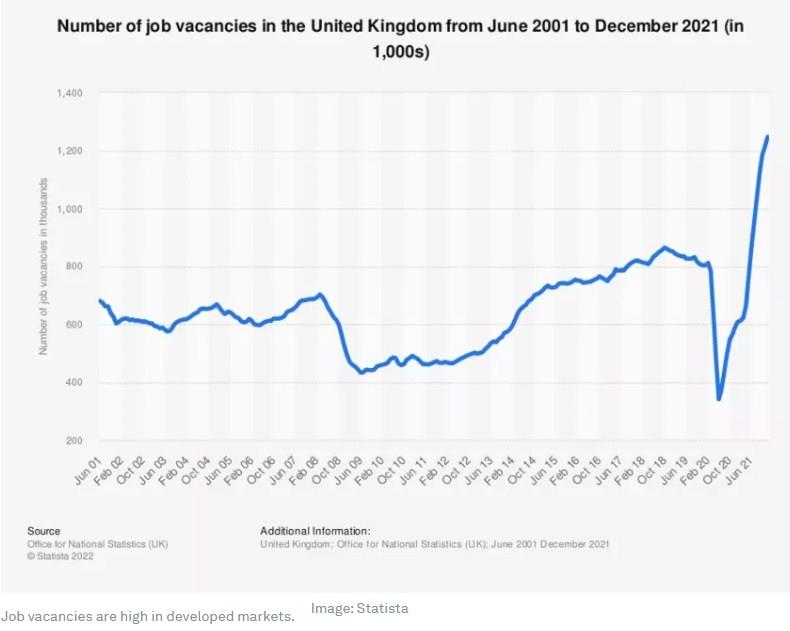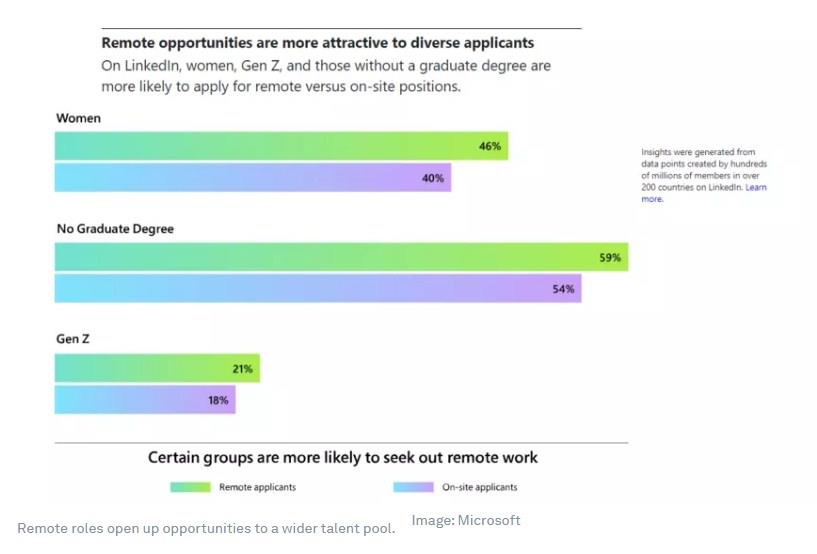by Charlotte Edmond*
It started off as “the Great Resignation” – swathes of workers inspired, or driven, by lockdowns to quit their jobs.
Now this job market trend has morphed into something more nuanced. Following a period of unprecedented uncertainty and disruption, millions of workers are leaving their jobs in search of roles with a better work-life balance and a workplace more aligned with their values.
It’s been dubbed “the Great Reshuffle”, and it’s shaking up the labour market.
What is the Great Reshuffle?
As initial lockdowns lifted and life became more “normal”, a large number of people chose to leave their jobs. This has caused record numbers of open positions and staff shortages in some industries. Nearly 3% of the US workforce quit their jobs in October 2021, with some of the highest resignation rates in hospitality and healthcare.

But it is becoming clearer that rather than resigning from work altogether, many employees are actually leaving in search of something more fulfilling and better suited to their values and life choices.
Many have set up their own businesses, while others have sought better-paid, more flexible employment, or changed career altogether.
“People are finding jobs that give them the right pay, benefits and work arrangements in the longer term,” Anthony Klotz, an associate professor of management at Texas A&M University, US, and the person who coined the term “Great Resignation”, told the BBC. “There’s now a greater ability for people to fit work into their lives, instead of having lives that squeeze into their work.”
What workers want has changed
According to Microsoft’s 2021 Work Trend Index – a survey covering more than 30,000 people in 31 countries – over two-fifths of people are considering leaving their employer in the next year. And flexibility and hybrid work opportunities have become a deciding factor for many.

In fact, remote working opportunities posted on LinkedIn have increased fivefold since pre-pandemic times.
Nearly nine in 10 people who have been working remotely during the pandemic want the opportunity to work from home at least one day a week post-pandemic, according to a survey of US workers by insurance company Prudential.
Career growth is another major concern for those seeking new opportunities, many of whom feel their progression has stalled since COVID-19 began. Nearly 40% of workers think the pandemic has caused a setback in their career, according to data from recruitment firm Robert Half.

What does this mean for the job market?
The job market has seen major shifts in the past – in the post-world war years, or following the Great Recession in the 2000s, for example. And the extent to which today’s trends mark a wider shift is yet to be seen.
But with vacancy levels high, employers are already recognizing the need to react when it comes, not just to recruitment, but to retention.
Along with pay and benefits, flexibility is increasingly becoming a differentiating factor. “Leaders must be focused on cultivating thriving cultures of internal mobility, prioritizing continuous learning and delivering robust benefits to support their workers,” says Prudential Vice-Chair Rob Falzon.

And as these remote working opportunities increase, they are opening up the job market to potential candidates that might have otherwise been excluded.
As the chart above shows, women and those without a degree are more likely to apply for opportunities that allow them to work from home.
And the Great Reshuffle will affect different sectors in different ways, the data suggests. In the UK, for example, there has been a notable influx of people into the IT and software industry, while education and hospitality have declined in popularity.
And confidence levels in job moves are high – people in the construction, logistics and tech industries are particularly at ease with their ability to find new employment.
Added to this, the stage people are at in their career is likely to influence their choices and next steps. Gen Z employees – those aged 24 and below, and who are most likely to be in entry-level roles – have quit recreation, travel and retail positions in far higher numbers than other age groups.
*Senior Writer, Formative Content
**first published in: www.weforum.org




 By: N. Peter Kramer
By: N. Peter Kramer
